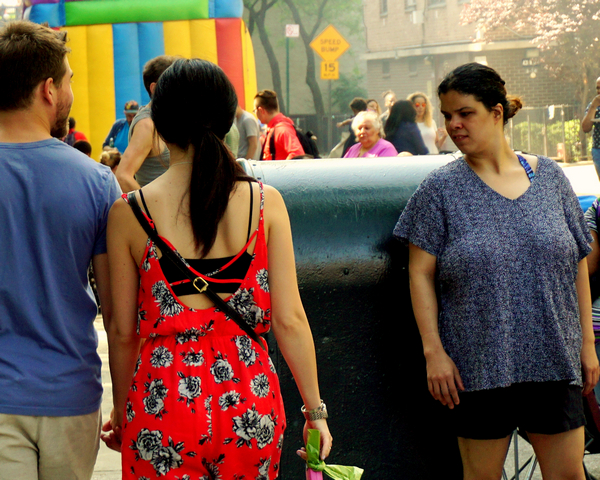“Be careful with the wheelchair,” said Ruthie.
“I’ve been doing this for 25 years. Â I know what I’m doing.” said Beth as she wheeled her older sister through the tiny kitchen and into the dinette, avoiding the tear in the faded yellow linoleum.
For breakfast, Beth made Ruthie scrambled eggs and an English muffin. Same as usual.
“After breakfast, I’ll go pick up your meds from Walgreen’s,” said Beth.
“Have you said hello to the new neighbors yet?” asked Ruthie.
“Why would I do that? Â They have no interest in us.”
“Make them some brownies. Be neighborly. After all, we live in the same apartment building.”
“Do we?” asked Beth, sarcasm cracking in her voice. “We don’t even take the same elevator!”
Last year, half of the building went co-op, and a separate entrance and elevator were installed for the new tenants. The McGovern sisters were listed as rent-controlled, still using the decrepit elevator where the button for the seventh floor was perpetually popped-out upside down.
“Buy a brownie mix at the supermarket and make them some brownies. It’s the neighborly thing to do. Besides, you don’t have a real job. What do you do anyway?”
“Take care of you,” Beth mumbled to herself and headed for the front door. It was dark in the apartment because the rent controlled apartments faced the blank side wall of the bank next-door.
Outside, the Brooklyn sun was shining brightly and Beth had to shield her eyes, like a vampire who just left the darkness of an enclosed coffin. As she made her way towards Walgreen’s and the supermarket, she passed the two new neighbors, a young couple in love, carrying a shopping bag from Whole Foods. Â They paid two million dollars to live in the building, which gave them the privilege of having a doorman and riding the silver elevator. Â They were God’s children with lives as glowing as the stars.
The couple walked past Beth as if she was invisible. Later that day, Beth made them brownies, which they never ate because of the gluten.














































